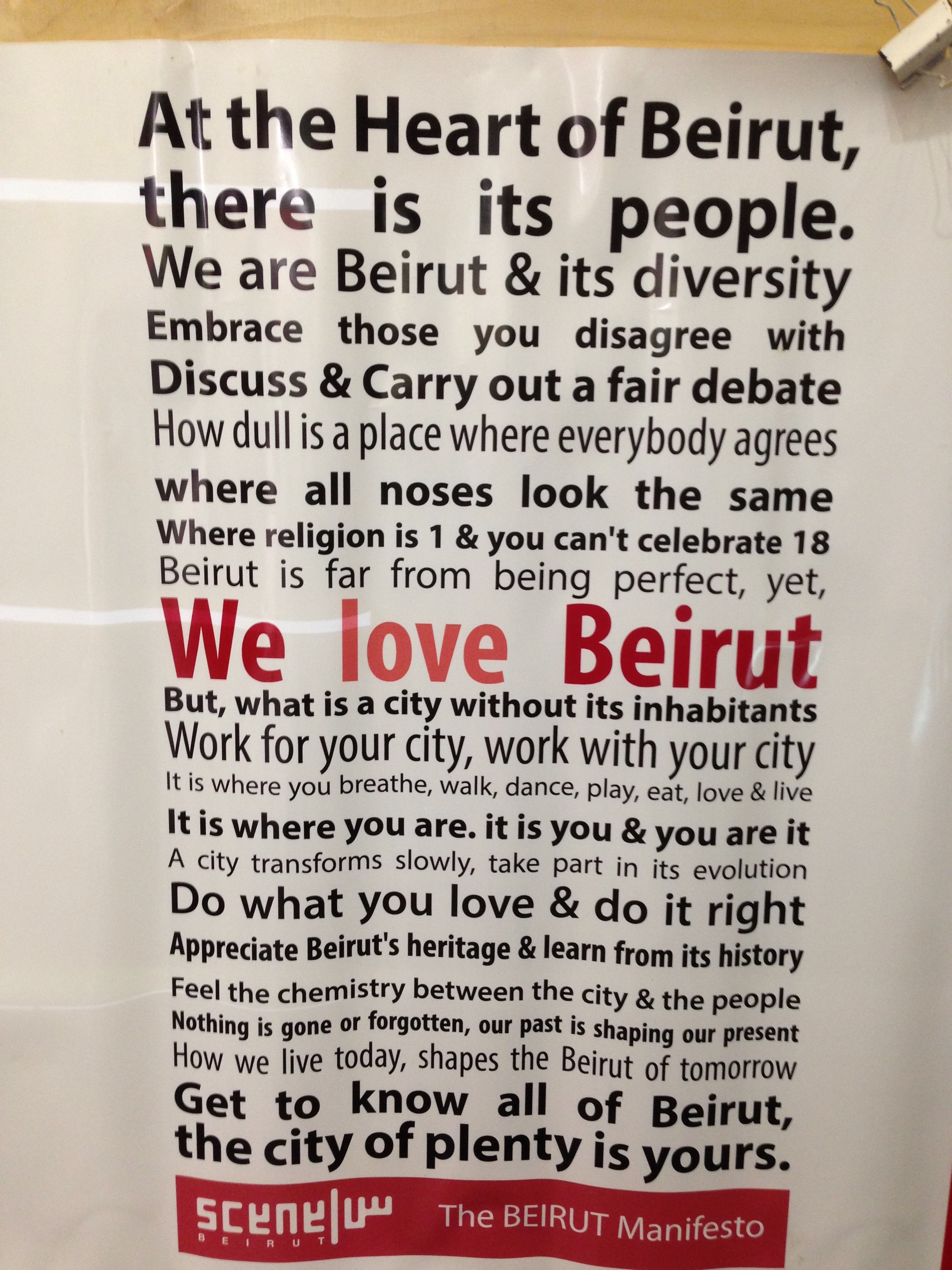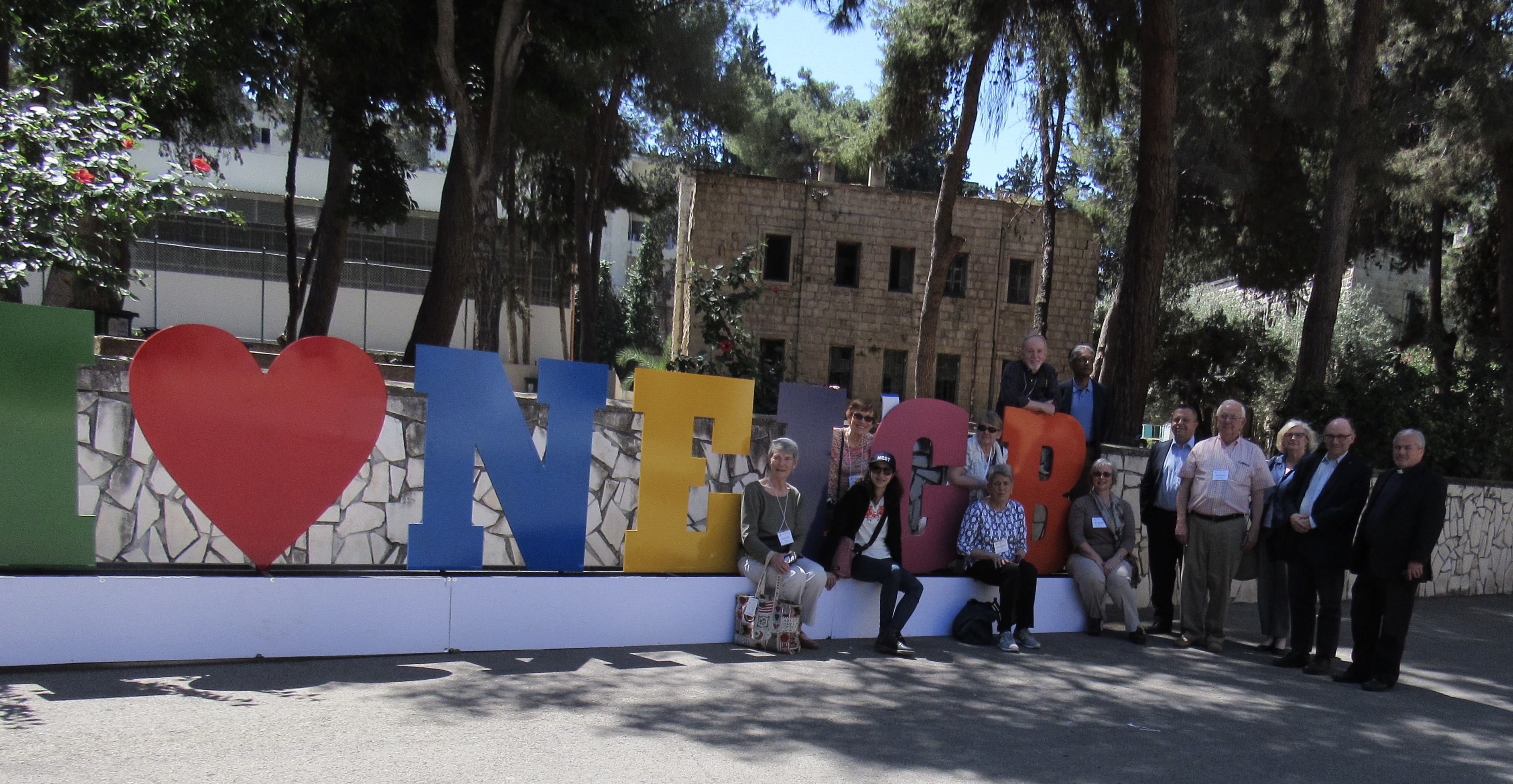A Letter from Elmarie and Scott Parker, serving in Iraq, Lebanon and Syria
Summer 2021
Write to Elmarie Parker
Write to Scott Parker
Individuals: Give online to E200504 for Scott and Elmarie Parker’s sending and support
Congregations: Give to D507569 for Scott and Elmarie Parker’s sending and support
Churches are asked to send donations through your congregation’s normal receiving site (this is usually your presbytery)
Subscribe to our co-worker letters
Dear friends,
Several years ago, we meandered through a local artisan fair. At one booth, we read “The Beirut Manifesto,” developed by a citizens group. Several lines continue to stay with me:
Appreciate Beirut’s heritage & learn from its history
Feel the chemistry between the city & the people
Nothing is gone or forgotten, our past is shaping our present
How we live today shapes the Beirut of tomorrow
We’ve learned and experienced over the past eight years how history and heritage are living realities in Lebanon and the wider region. The past shapes the present, and choices made today shape what is yet to come. The National Evangelical Synod of Syria and Lebanon (NESSL) profoundly experiences this interconnected reality through its commitment to high-quality education.
Early Presbyterian mission in the region emphasized education, especially education for those most on the margins of society at the time—girls, women, and impoverished and/or orphaned boys. Beginning in the early 1800s, these early workers were committed to starting a school and medical center in every town throughout Ottoman-era Greater Syria. The NESSL has continued this critical work of education.
Today the Synod oversees seven private schools (nursery through 12th grade) in Lebanon and one in Syria. Three other schools are overseen by local Synod congregations in Syria. Pre-pandemic, around 10,000 students were annually enrolled in these schools, with many receiving scholarships in order to attend. Christians and Muslims study, learn and play side-by-side. Life-long friendships are nourished across religious and ethnic differences. Students develop not only their knowledge but also their capacity and skills to serve their wider community and to value and respect one another’s religious and cultural commitments and traditions. Many of the transformational leaders in the region have a Synod School (and a Lebanese American University or American University of Beirut or Near East School of Theology—all started by early Presbyterian mission workers) background. These schools, collectively, have nurtured countless living stones of thoughtful entrepreneurial young adults who have gone on to positively impact their communities and societies through a variety of initiatives over the years. These schools all persevered through years of war—the civil war in Lebanon and the current war in Syria—to continue in their mission.I recently met with Rev. Joseph Kassab, General Secretary for the NESSL. He shared the impact the current economic collapse in Lebanon is having on the schools—in many ways a more devastating impact than 15 years of civil war in Lebanon. Yearly school fees two years ago would have equaled $4,000 a year per student. Now they are equivalent to $250 because of the devalued Lebanese currency. For several reasons, it is not possible to increase school fees. But the costs to keep these schools open continually increase as prices for fuel, supplies, food, transportation, and other expenses exponentially rise.
These schools used to fund the rest of the Synod’s ministry work—paying pastors’ salaries and programmatic costs—in addition to supporting several thousand teachers and staff through solid middle-class salaries. Now, all of that is at risk. Each day hundreds of highly-skilled, experienced people leave Lebanon to find a stable future for their families elsewhere, including teachers from the Synod Schools.
When I asked Rev. Kassab what the current priorities are for the Synod, he quickly replied, “Working with international partners to help sustain our schools, pastors, and diaconal ministries during this time of economic crisis in Lebanon. To be forced to close our schools would mean losing our Christian influence on the future of our country and the region. To lose our pastors because we cannot sustain their living costs will starve our congregations of spiritual leadership and nurture. To lose our diaconal ministries means not serving the people of our congregations and community at a time when families can no longer buy their own food because they have lost their incomes. We have never faced such a crisis, and we cannot face it alone. We need the help of our Presbyterian friends in the USA to weather this perfect storm that has enveloped Lebanon and Syria.”
There really are not enough words to describe the impact of these multiple catastrophes. For two years, they have raged over Lebanon—a political crisis, an economic collapse, the COVID 19 pandemic, and the Beirut Port blast. Even so, our partners persevere, exploring all options, continuing the increasingly exhausting work of daily adapting to the new challenges revealed by the continuing ripple effect of these intersecting crises. We (all of us who are a part of the PC(USA) community) seek to accompany our partners through this perfect storm of catastrophic events. Thank you for being a part of that accompanying presence through your prayers, emails, WhatsApp messages, zoom calls, webinars with partners, and financial support. Please contact me with any questions you might have regarding next partnership steps.
I close with a paraphrase of the Beirut Manifesto quoted above. I wonder how you might paraphrase it for your context.
Appreciate Lebanon’s heritage & learn from its history
Feel the chemistry between the land & the people
Nothing is gone or forgotten, our past is shaping our present
How we live today, shapes the Lebanon of tomorrow
Together in Christ’s Service,
Elmarie and Scott Parker
![]() You may freely reuse and distribute this article in its entirety for non-commercial purposes in any medium. Please include author attribution, photography credits, and a link to the original article. This work is licensed under a Creative Commons Attribution-NonCommercial-NoDeratives 4.0 International License.
You may freely reuse and distribute this article in its entirety for non-commercial purposes in any medium. Please include author attribution, photography credits, and a link to the original article. This work is licensed under a Creative Commons Attribution-NonCommercial-NoDeratives 4.0 International License.
Tags: American University of Beirut, Beirut, Beirut Manifesto, Beirut Port blast, COVID-19, Lebanese American University, lebanon, Matthew 25, medical centers, National Evangelical Synod of Syria and Lebanon (NESSL), Near East School of Theology, Rev. Joseph Kassab, schools
Tags: Elmarie Parker

